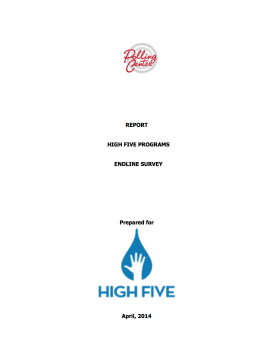Diarrhea has been the main public health problem in Indonesia. The lastest Survey of Demography and Health in Indonesia (SDKI) indicates that 44 children in 1000 die before their fifth birthday in Indonesia and diarrhea is the main cause of death. Several studies (Fewtrell et al, 2005; Curtis, 2003) indicate that hygiene and sanitation practices are an important key to reducing the incidence of diarrhea. However, the hygiene and sanitation that is not practiced correctly or consistently within households in the community in general, hence endangering infants and children at risk .
The government of Indonesia launched the program Total Community-based Sanitation (STBM) in 2007 to improve the cleanliness and sanitation in households, in order to reduce the incidence of diarrhea, the second highest cause of death for children under the age of five. The program consists of five pillars of cleanliness and sanitation, namely:
- Stop open defecation
- Hand washing with soap
- Food and water management/treatment and safe storage
- Solid waste management
- Wastewater management
Related


